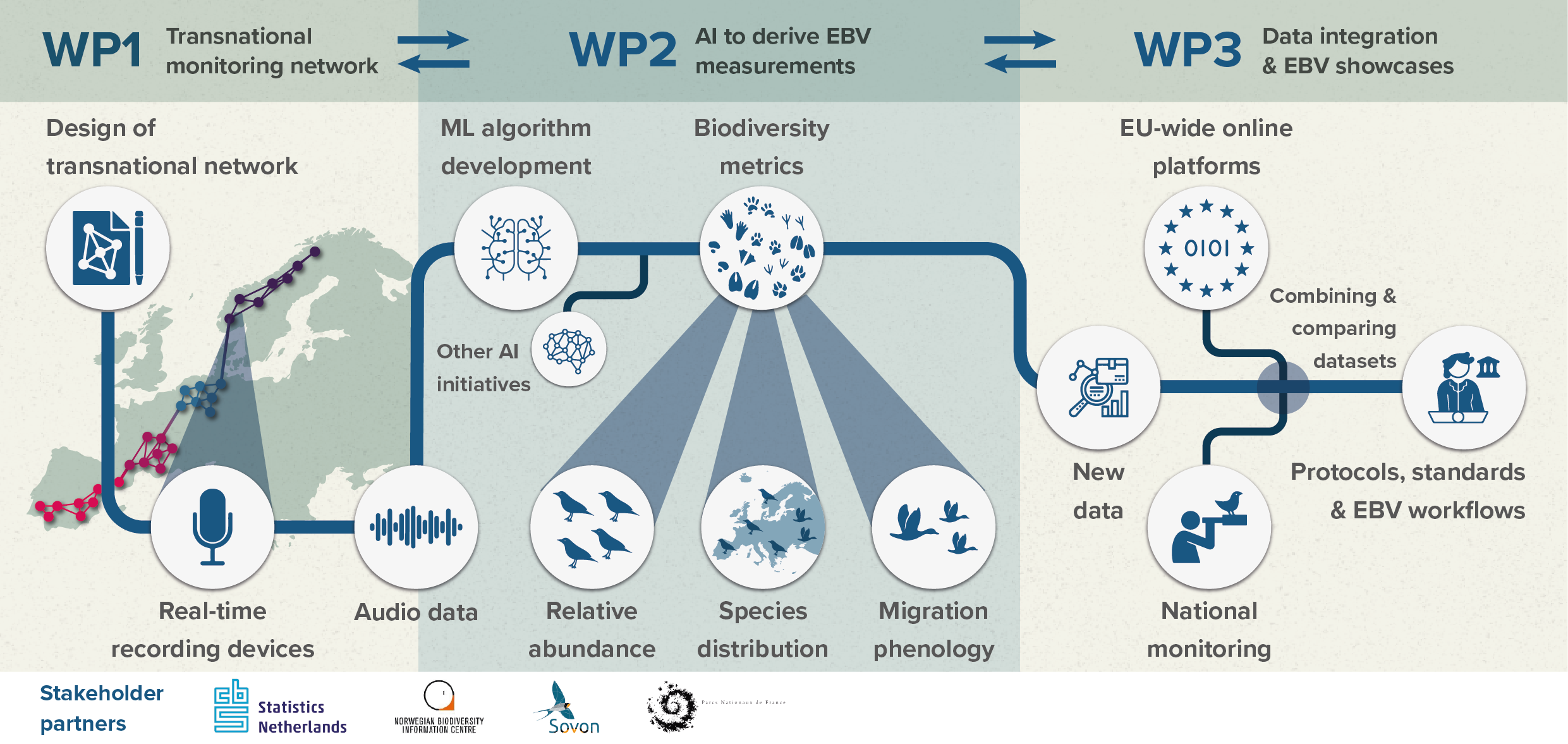
🌍 Project Overview
TABMON — Towards a Transnational Acoustic Biodiversity Monitoring Network.
TABMON establishes a cross-country passive acoustic monitoring network to complement existing biodiversity schemes and address gaps in reporting for EU directives and the EU Biodiversity Strategy for 2030. The network spans from the Mediterranean to the Arctic and focuses on turning large-scale soundscape data into policy-relevant indicators.
🎯 Key Objectives
- 📡 Deploy and operate a distributed network of autonomous acoustic recorders across Norway, the Netherlands, France, and Spain
- 🤖 Develop AI pipelines that convert audio into species/community metrics aligned with Essential Biodiversity Variables (EBVs)
- 🔗 Integrate outputs with national monitoring programmes to fill reporting gaps and support evidence-based decisions
- 📊 Create real-time biodiversity indicators for policy makers and conservation managers
💰 Funding & Context
🇪🇺 TABMON is supported under Biodiversa+, the European partnership for biodiversity under Horizon Europe, with national co-funding.
🔊 Why Acoustic Monitoring?
Acoustic sensing enables:
- 💡 Cost-effective, scalable, and repeatable biodiversity observations
- 🌙 Monitoring of nocturnal and cryptic taxa often missed by traditional surveys
- ⏰ High-frequency time series suitable for early-warning indicators
- 🌐 Continuous 24/7 monitoring across remote and inaccessible locations
- 🔄 Non-invasive data collection with minimal environmental impact
🗺️ Geographic Scope
Our network spans four key biogeographic regions:
- 🇳🇴 Norway: Arctic and boreal ecosystems
- 🇳🇱 Netherlands: Temperate lowland and coastal habitats
- 🇫🇷 France: Mediterranean and temperate transition zones
- 🇪🇸 Spain: Mediterranean and montane ecosystems
Ready to dive deeper? 🔍 Explore our methods and technical approach or check out the latest resources from our monitoring network.